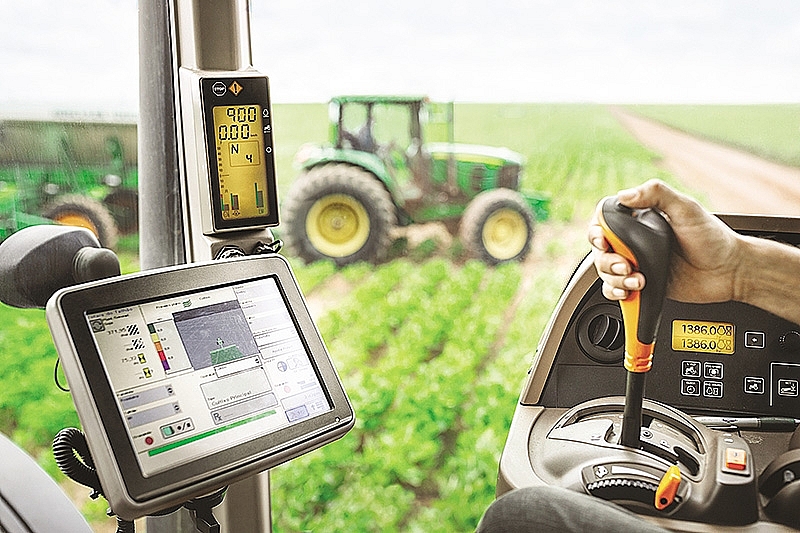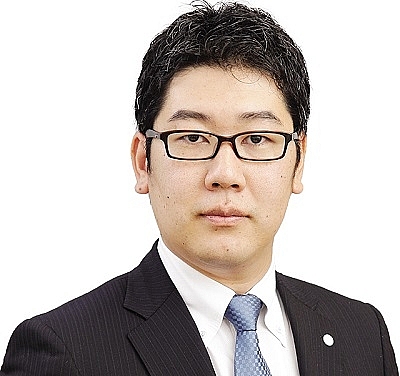High-tech path to sustainability
 |
| Utilising cutting-edge technology in agriculture can improve productivity, farmers’ livelihoods, and the economic growth of the entire nation |
What role do you think advanced technology will play in agricultural development?
 |
| Kohei Sakata |
During the Grow Asia Forum under the World Economic Forum on ASEAN 2018 in Vietnam, the Vietnamese prime minister shared his vision of making Vietnam one of the 15 most developed agricultural markets in the world in just 10 years. The PM called for the private sector to get more involved with cutting-edge technologies in the Fourth Industrial Revolution to transform the agricultural industry of ASEAN member economies, including Vietnam.
In developed countries, technology is applied in an endless list of agricultural processes, including farm machinery, livestock handling facilities, feeding capabilities, agronomy, and communications. Vietnam should not stand outside this trend.
On a related note, Public-Private Partnerships (PPPs) could be a useful means to enhance the policy and regulatory environment by attracting further investment to power the next era of agricultural innovation. The use of global best practices and science-based decision-making will take the Vietnamese agricultural sector to a new level.
Bayer, becoming the world leader in agricultural innovation with its wide range of products and solutions, fits perfectly into this picture, as it has a solution for all issues in upgrading agricultural practices. Our technology and product lineup could provide a push to help Vietnamese farmers step into the Industry 4.0 era.
What advanced technologies can Bayer apply to Vietnam?
In my opinion, advanced technology could be a springboard for improving agricultural production.
In the digital era, satellite imagery, application algorithms, high-tech sensors, smartphone applications, and global positioning system (GPS) devices can offer farmers timely information on the pest situation, water levels or droughts throughout the season, allowing them to make swift and accurate decisions.
As the pioneer in utilising knowledge and digital data to improve agricultural processes, Bayer wants to transfer advanced technologies via building digital farms (which utilise satellite imagery, application algorithms, and high-tech sensors) to support Vietnamese farmers in monitoring their farms in real time and even predict upcoming problems to resolve them before they can materialise.
Along with transferring advanced technology, Bayer’s partnerships in Vietnam are a reflection of our genuine commitment to promote the highest stewardship standards in agriculture throughout the nation. For example, Bayer and the German Agency for International Cooperation (GIZ) started in 2015 the Better Rice Initiative Asia (BRIA) project in the country. The main strategy of BRIA for strengthening the whole rice value chain is capacity building and training activities which enable farmers to enhance their knowledge on sustainable rice farming methodologies. Since the roll-out of BRIA in Vietnam, Bayer, GIZ and Departments of Agriculture and Rural Development have provided trainings on smart rice cultivation system, with more than 3,000 rice farmers in three provinces applying successfully recommended and tested smart rice cultivation systems. This concept has shown an increase of 20 per cent in gross margin through enhanced productivity with around 270 tonnes of high quality rice (meeting export standards) in the project areas.
Bayer will continue to introduce cutting-edge technologies to Vietnamese farmers – enabling and empowering them with technologies such as safe and effective crop protection products in responsive manners to produce more food, use less input resources, live better lives, and help propel the national economy.
However, technological innovation alone will not be enough to help the world meet the future challenges in agriculture. In order to contribute significantly to the United Nations Sustainable Development Goals, we need to ensure that our focus on innovation is not only concerned with technological innovation, but also with social innovation that is inclusive and promotes truly sustainable and holistic growth for local communities.
A large number of Vietnamese farmers still abuse crop protection tools, either going beyond the recommended volume or using the chemicals for the wrong purposes. In order to combat these challenges, the Ministry of Agriculture and Rural Development (MARD) started to implement bans and cut-off of registrations of crop protection products. What are your thought on this proposal?
There are still low levels of awareness and social responsibility among the users of agrochemicals in Vietnam, causing numerous undesirable concerns on public health and environment. We have to address this concern and provide effective solutions to promote and enforce responsive use of crop protection tools by collaborative approaches from all industry stakeholders including both private and public sectors. This effort should include, for example, product stewardship training to farmers, strict control of illegal and poor quality products, and introduction of more biologics and adoption of advanced application technologies which can minimise chemical dose.
Bayer shares the Vietnamese government and the MARD’s long-term vision of building a sustainable agricultural sector to improve the value and competitiveness of Vietnamese agricultural exports and continue upgrading farmers’ income.
We support and encourage the government to ensure that crop protection tools are properly assessed through a consistent, scientifically rigorous process in line with internationally accepted methods and standards.
However, such assessments need to be conducted by scientific experts under a suitable timeline to allow for a thorough review from scientific, social and economic points of views, because decisions to immediately ban or limit the use of certain chemicals may set a concerning precedent that will impact on environmental and economic damage as well as companies’ willingness to invest in the Vietnamese agricultural sector.
More importantly, the banning of any crop protection tool without consultation with scientific experts and considering credible scientific evidence will limit farmers’ access to safe and effective crop protection tools to produce safer, more affordable, and nutritious food. In fact, a glyphosate ban in Sri Lanka, Brazil, and France is being unwound due to the enormous economic damage inflicted on the agriculture sector.
The company also underlines its strong commitment to transparency. By giving access to safety relevant crop protection studies, how does Bayer define what lies behind the registration of a crop protection product and how the safety of such a product is tested?
Societal trust in the work we do enables us to continue to innovate and we strongly believe transparency is a foundation of building that trust. As an innovation company we also have the responsibility to ensure that all our products are completely safe when used according to label instructions. As innovation is only helpful if it is understood and appreciated, Bayer has taken the initiative to share safety-related data of its compounds, which was previously only disclosed to regulatory authorities. Bayer is taking the lead with this initiative to promote transparency, foster understanding of the exceptional safety standards required for crop protection products and create a platform for open dialogue on questions related to safety with customers and the general public.
What the stars mean:
★ Poor ★ ★ Promising ★★★ Good ★★★★ Very good ★★★★★ Exceptional
Related Contents
Latest News
More News
- Spring Fair 2026 boosts domestic demand (March 02, 2026 | 16:30)
- Law on Investment takes effect (March 02, 2026 | 16:21)
- Ho Chi Minh City attracts nearly $980 million in FDI in early 2026 (March 02, 2026 | 10:57)
- Businesses bouncing back after turbulent year (February 27, 2026 | 16:42)
- VinaCapital launches Vietnam's first two strategic-beta ETFs (February 26, 2026 | 09:00)
- PM sets five key tasks to accelerate sci-tech development (February 26, 2026 | 08:00)
- PM outlines new tasks for healthcare sector (February 25, 2026 | 16:00)
- Citi report finds global trade transformed by tariffs and AI (February 25, 2026 | 10:49)
- Vietnam sets ambitious dairy growth targets (February 24, 2026 | 18:00)
- Vietnam, New Zealand seek level-up in ties (February 19, 2026 | 18:06)

 Tag:
Tag:




















 Mobile Version
Mobile Version